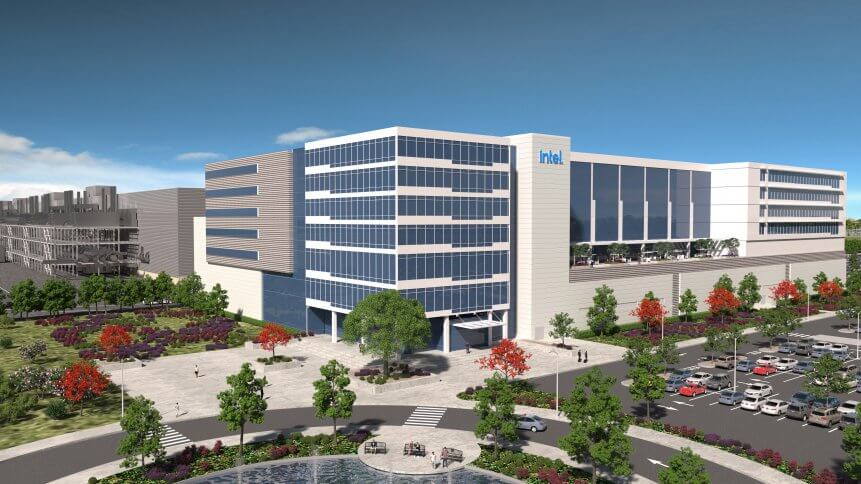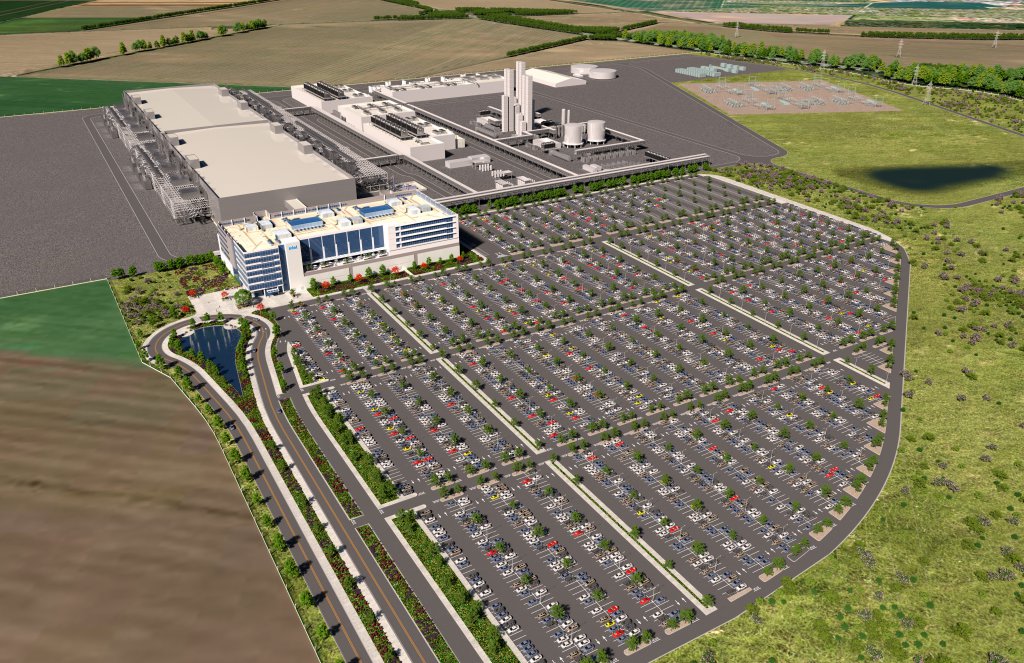Intel invests 80 billion euros to create chip ecosystem across Europe

With the growing demand for semiconductor chips, Intel has announced its first phase of an 80-billion-euro plan in the European Union over the next decade. The first phase of the development will be an investment of 33 billion euros into building a leading-edge semiconductor fab mega-site in Germany, a new R&D and design hub in France, as well as investment in R&D, manufacturing, and foundry services in Ireland, Italy, Poland, and Spain.
According to Pat Gelsinger, CEO of Intel, the planned investments are a major step both for Intel and for Europe in creating a chip ecosystem. The landmark investment would bring Intel’s most advanced technology to Europe, creating a next-generation European chip ecosystem and addressing the need for a more balanced and resilient supply chain.
“The EU Chips Act will empower private companies and governments to work together to drastically advance Europe’s position in the semiconductor sector. This broad initiative will boost Europe’s R&D innovation and bring leading-edge manufacturing to the region for the benefit of our customers and partners around the world. We are committed to playing an essential role in shaping Europe’s digital future for decades to come,” added Gelsinger.
For Ursula von der Leyen, EU Commission President, Intel’s 80 billion Euro investment plan is the first major achievement under the EU Chips Act. She added the EU Chips Act will make Europe a leader in global semiconductor production.
The EU Chips Act aims to have 20% of the world’s microchip production housed in Europe. The act will also focus on the R&D of semiconductors and emerging technologies in the field.
Intel creates a chip ecosystem in the EU
In Germany, Intel will develop two first-of-their-kind semiconductor fabs in Magdeburg, the capital of Saxony-Anhalt. Planning will start immediately, with construction expected to begin in the first half of 2023 and production planned to come online in 2027, pending European Commission approval. The new fabs are expected to deliver chips using Intel’s most advanced, Angstrom-era transistor technologies, serving the needs of both foundry customers and Intel for Europe and globally as part of the company’s IDM (integrated device manufacturer) 2.0 strategy.
The Silicon Junction, as Pat puts it, will serve as the connection point for other centers of innovation and manufacturing across the country and region.

A rendering shows early plans for two new Intel processor factories in Magdeburg, Germany. Announced in March 2022, the 17 billion euro project will deliver computer chips using Intel’s most advanced transistor technologies. Construction is expected to begin in the first half of 2023, with production coming online at the end of 2027. (Credit: Intel Corporation)
“Intel put the silicon in silicon valley. We have the silicon desert in Arizona and New Mexico. We’re building the silicon heartland in Ohio. We have the silicon isle in Ireland and now, we will have the silicon junction in Magdeburg,” said Gelsinger.
In Leixlip, Ireland, Intel will spend an additional 12 billion euros and double the manufacturing space to bring Intel 4 process technology to Europe and expand foundry services. Once complete, this expansion will bring Intel’s total investment in Ireland to more than 30 billion euros.
In addition, Intel and Italy have entered into negotiations to enable a state-of-the-art back-end manufacturing facility. With a potential investment of up to 4.5 billion euros, this factory would create approximately 1,500 Intel jobs plus an additional 3,500 jobs across suppliers and partners, with operations to start between 2025 and 2027. Intel and Italy aim to make this facility a first of its kind in the EU with new and innovative technologies.
This would be in addition to the foundry innovation and growth opportunities Intel expects to pursue in Italy based on its planned acquisition of Tower Semiconductor. Tower has a significant partnership with STMicroelectronics, which has a fab in Agrate Brianza, Italy.
In total, Intel plans to spend more than 33 billion euros on these manufacturing investments in the EU. By significantly increasing its manufacturing capacities across the EU, Intel would lay the groundwork to bring various parts of the semiconductor value chain closer together and increase supply chain resiliency in Europe.
Other investments by Intel in Europe include:
- Plateau de Saclay, France – a new European R&D hub, creating 1,000 new high-tech jobs at Intel, with 450 jobs available by the end of 2024. France will become Intel’s European headquarters for high-performance computing and artificial intelligence (AI) design capabilities. Intel also plans to establish its main European foundry design center in France, offering design services and design collaterals to French, European, and worldwide industry partners and customers.
- Gdansk, Poland – increasing lab space by 50% with a focus on developing solutions in the fields of deep neural networks, audio, graphics, data center, and cloud computing. The expansion is expected to be completed in 2023.
- Barcelona, Spain – The Barcelona Supercomputing Center and Intel are developing zettascale architecture for the next decade. The supercomputing center and Intel plan to establish joint labs in Barcelona to advance computing.
“We are building world-changing technology that improves the life of every person on the planet. We have high standards and big ambitions, especially in sustainability. A state-of-the-art European semiconductor ecosystem will support the green transition and help deliver the European green deal. Intel will power all new European sites with 100% renewable energy,” said Gelsinger.










